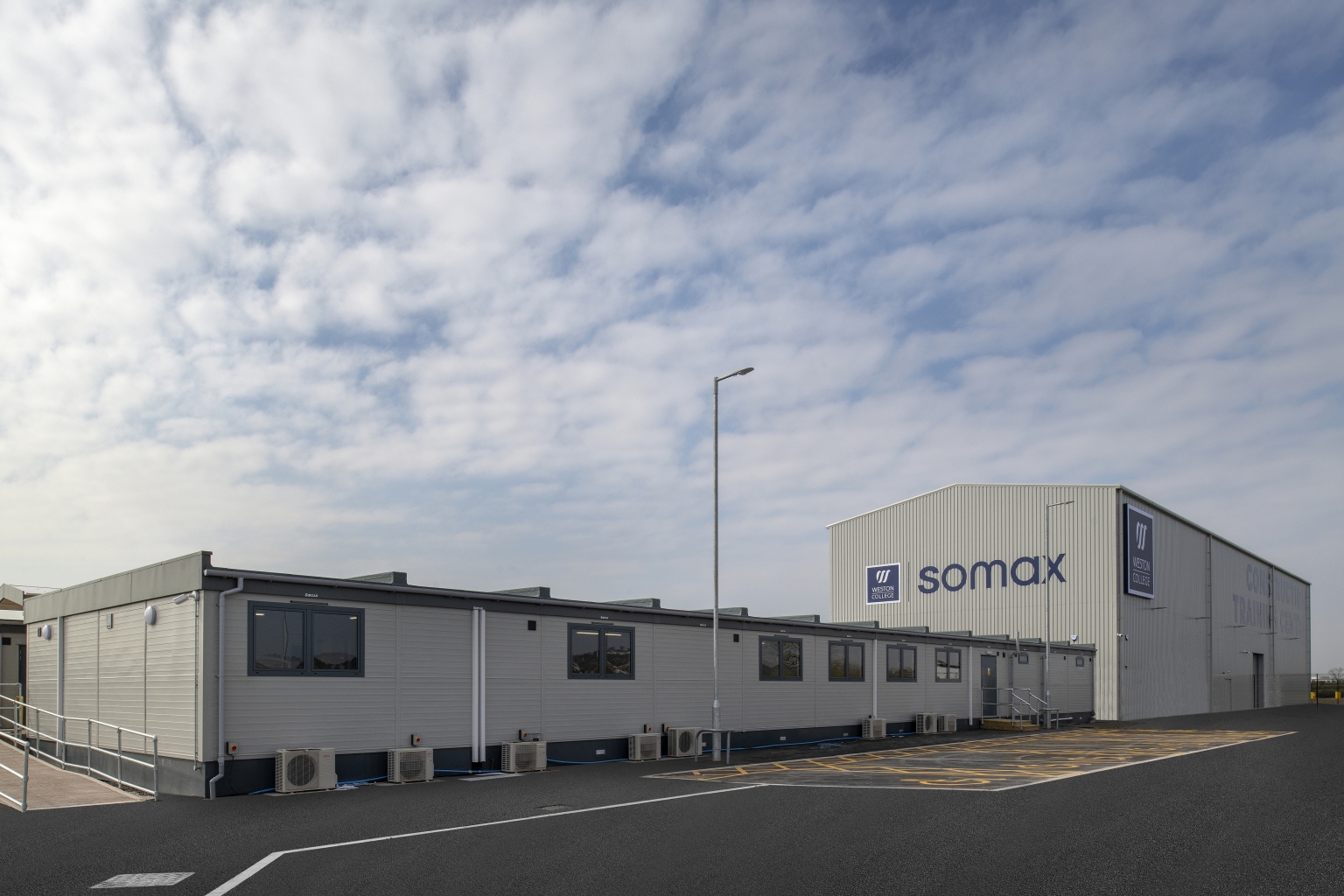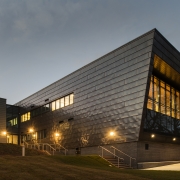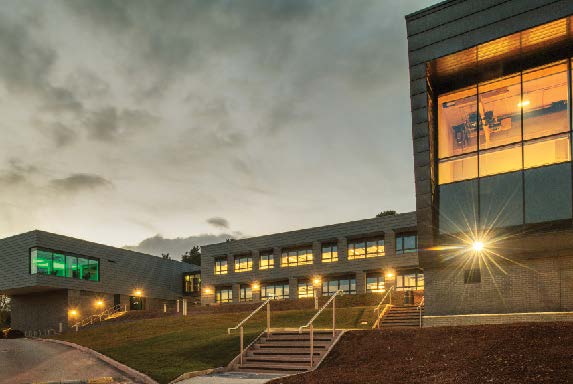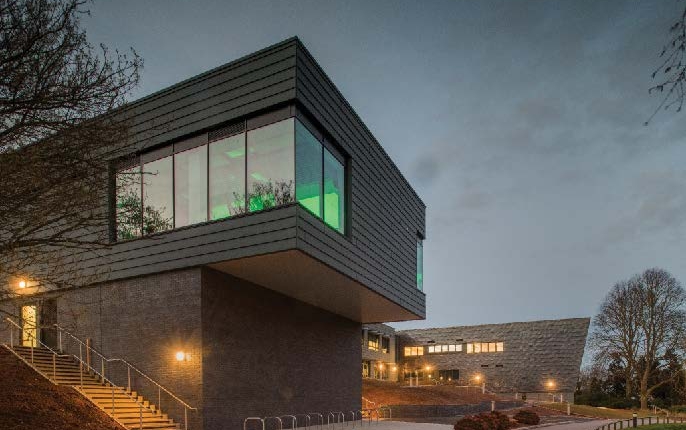Construction Training Centre
Construction Training Centre
Weston-super-Mare, North Somerset
Project Details
Client
Weston College
Project Manager
Weston College
Architect
View Architects Ltd
Contractor
Midas Construction Ltd
Value
£2.9m
Contract Period
33 weeks
Procurement Type
Competitive tender – 2 stage
Form of Contract
JCT Design & Build 2016
Size
1,809m²
Apprentices
7
Project Brief
Created to address the increasing demand for a skilled construction workforce in the region, the Construction Training Centre provides state-of-the-art specialised teaching space, offering training specific to the construction industry and designed with employers’ needs in mind. Midas delivered this single-storey building in a semi-rural location to the west of Weston-super-Mare.
Made possible by match funding from Weston College and the West of England Local Enterprise Partnership (LEP) through the Local Growth Fund, administered by the West of England Combined Authority, the Centre is taking a lead role in answering the construction skills shortage. The main teaching centre is a block of modular buildings, constructed off site, connected with a central corridor covered by a canopy. Adjacent to the modular block are three connected steel frame cladded sheds. The project includes several areas of storage and work yard together with a dig training area.
Enabling works included demolition and removal of old farm buildings, part piled foundations and excavations for ground beams, slabs and drainage, infill and diversion of two sections of a watercourse and formation of attenuation ponds with a new water route.
The client scored the project 91% in the customer satisfaction survey at practical completion.
“The Construction Training Centre really is meeting the need of the industry. Construction workers were having to go as far as Birmingham to complete their training – which includes compulsory qualifications. This centre has brought all of the training under one roof, and is conveniently located just minutes from junction 21 of the M5. Our courses are industry-recognised and nationally accredited, which is a real plus for a new facility. This has helped to ensure that we have a busy start to life at the Construction Training Centre, and we look forward to this continuing over the coming months.”
Community Engagement
Career Development
- 7 Apprentices provided with training through the project
Key Challenges
Weston College leased the land on a five-year basis
- Due to the time limit of the lease, the Construction Skills Centre needs to be relocated at the end of the College’s contract on the land. Midas addressed this through design and construction of a combination of refurbished modular buildings and new build warehouse, to deliver a structure that can easily be dismantled and relocated at the end of the lease. The modular building is formed of 23 units that can be picked up and moved in blocks of 13, and use of off-site modular construction resulted in a shorter on-site programme time and less waste. As agreed with the client, Midas left bolts exposed in the warehouse unit to enable it to be easily dismantled and relocated. Midas amended the foundation design to pad and raft foundations, which will be easier for the client to clear at the end of their lease period. To manage the high water table with pad and raft foundations Midas completed an extensive drainage scheme under licence from the North Somerset Levels Internal Drainage Board (NSLIDB), bridging over the rhynes in several places and installing filtration systems to prevent run off.
The client required the project delivered to BREEAM Good
- The project surpassed the client’s target and achieved BREEAM Very Good through numerous environmental measures. The team protected local wildlife, plants and waterways throughout the works; installed sensitive lights to prevent disturbance of bat feeding routes; used of off-site modular construction to reduce waste; installed permanent, secure bicycle storage for 20 bikes; diverted of 99.5% of waste from landfill; and used a community recycling scheme for wood waste and unwanted timber pallets. The project achieved an air tightness result of 4.23 & 3.68m³/hr.m² @ 50 Pa, against a maximum of 10.0m³/hr.m² @ 50 Pa. Early in the project, Midas commissioned an ecological survey that confirmed the rhynes (drainage ditches used as local flood management systems) did not contain any protected species and prior to works the site team completed a visual survey to check no significant wildlife was present.
A challenging site with a high water table and numerous watercourses, in an environmentally sensitive environmental area
- Midas liaised with the NSLIDB to manage the risk of works in proximity to rhynes. The team secured a licence from the NSLIDB to work within nine metres of rhynes, ensuring they remained clear throughout the works. Midas identified drain routes and risk potential as part of site inductions, and managed surface water through an efficient drainage design. The site used silt busters to filter all water sent off site. At the start of the project Midas implemented a Construction Environmental Management Plan to manage the high pollution risk to adjacent properties and the rhynes; protected existing ditches and rhynes from site run off; and identified watercourses, drains and their outputs. The site controlled water run-off with straw bales placed along the rhynes and formed a clay earth bund to prevent polluting nearby watercourses, with spill kits stored on site and a pollution incident response action plan in place. Prior to undertaking diversion works to the rhyne within the site and for drainage works to the pond, the Assistant Site Manager contacted the inland drainage board and received verbal approval to pump extracted water into the grassland around the site.
The design team simultaneously worked on two projects for the client: the Construction Training Centre and the Health and Active Living Centre, and brought both in line with the client’s budget
- Midas came onto this project at RIBA Stage 1, appointing our own design team with Smith Consult Limited novated to the M&E subcontractor. Both projects were initially over the client’s budget, and Midas completed an extensive and effective early value engineering exercise with them at RIBA Stage 3, providing design and material amendments to make the projects financially viable. Midas conducted stakeholder engagement exercises, working with the college and modular manufacturers to conduct a best value review of external finishes, delivering a cost-effective solution without compromising the quality of the finish. Midas also completed a total redesign of both the Health and Active Living Centre and the Construction Training Centre to ensure the architectural plans met the correct site requirements. The team designed out any challenges in the planning stages, tailoring the foundation designs to suit the site conditions following site investigation and completion of archaeological reports.
Project Takeaways
Our Success
- Enabling works included demolition and removal of timber cattle sheds that had evidence of fragile asbestos cement roofing, asbestos containing materials and possible ground contamination. Midas appointed an asbestos surveyor and remover and produced an Asbestos Management Plan with a Cat B plus a Point of Work Risk Assessment for these works. The site had an asbestos-sealed waste skip, which the team had taken off site as soon as possible following completion of the removal works. Midas included asbestos awareness as part of site inductions.
- To reduce inconvenience to local residents, Midas encouraged deliveries to use major routes into the town and approach the site via the more suitable A370. Deliveries entered the site via the shared access road off Churchland Way, which residents used to walk their children to school. Midas liaised with the neighbours to discuss access issues and the Assistant Site Manager provided them with hi-vis tabards to high light their presence during school walks along the lane. To reduce risk, the site scheduled deliveries; enforced a 20mph speed restriction on the lane; and established a suitable sized entry gate and hard standing area, which housed up to two simultaneous deliveries, to get deliveries in off the road as quickly as possible to avoid unnecessary congestion. The site unloaded deliveries using a telehandler and contained a turning circle to eliminate the need to reverse onto the highway. Site traffic exited under supervision by a vehicle controller to reduce risk to avoid risk of collision on the public highway and to reduce risk to pedestrians passing the site.
- To manage the site’s high water table and proximity to rhynes, Midas implemented an extensive attenuation scheme, effectively selecting the most appropriate groundworks subcontractors to ensure success.
Our Learnings
- Due to its proximity to a Norman fort, there was a risk of archaeological importance on the site. Prior to commencement, another company completed a site investigation (SI) to establish ground conditions. Midas accessed the SI information from a separate planning application on the site, which confirmed poor ground conditions and a known flood risk. Midas interrogated SI reports, including historic data provided at tender stage, and appointed Wessex Archaeology Limited to investigate the site and complete trench digs across the area prior to Midas commencing works.
Value Added
- Midas delivered £511,960 (19.5%) of added value and best practice savings at Gateway 4. Savings included a reduction in the foundation design, following close review with the supply chain, for a saving of £205k; revision and reduction of the planned site entrance to one combined entrance, saving £9,460k; reducing the covered area and altering external finishes to save £90k; and retaining excavated soil onsite for a saving of £60k.
- The site employed 83.3% small and medium-sized enterprises (SMEs), with 67.7% of the SMEs based within 30 miles of the site.
- The project team collaborated with the team at the Construction Skills Centre site to deliver a combined Employment and Skills Plan. The sites supported eight work experience placements; created 13 jobs with the National Skills Academy for Construction, including six apprentices; supported 11 Construction Careers Information, Advice & Guidance events; delivered 218.9 training weeks on site; delivered four training plans for subcontractors; and supported the achievement of 85 NVQs and industry certifications. Representatives from the project attended the North Somerset Careers Convention and the Weston-super-Mare Careers Convention.
KPI’s & Statistics
| Contract | Gateway 2 Planning | Gateway 3 Contract Agreement | Variation |
| Cost | £2,918,791 | £2,631,357 | -£287,434 (-9.8%) |
| Time | 26.1 weeks | 25.9 weeks | -0.29 weeks (-1.1%) |
- Apprentices: 7
- Average AIR: 0
- Average CCS score: 40
- Waste diverted from landfill: 99.5%
- Cost/m2: £1,455m²
- Cost/m2 excl abnormals: £506m²
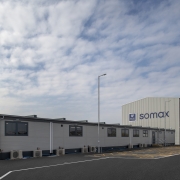 Midas Group Ltd
Midas Group Ltd
